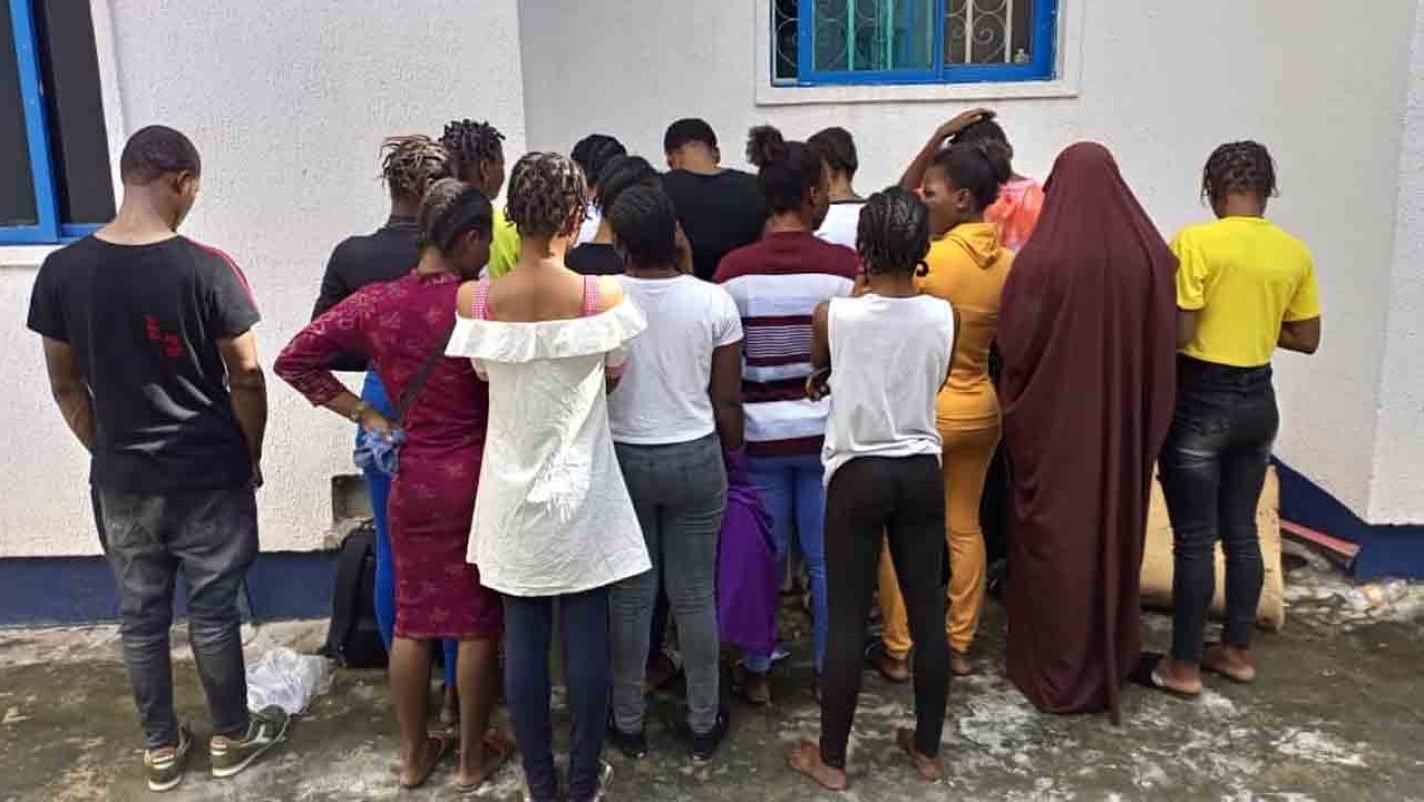Trafficking: How Extreme Poverty, Waning Opportunities Spike Demand for Minors

Source:https://guardian.ng/
Trafficking of minors in Nigeria, for purposes such as domestic service, sex work, and forced surrogacy, persists as a widespread and profitable activity. Children are often deceived, coerced, or persuaded to leave their homes and then exploited elsewhere for profit.
Key Highlight:
The challenging security situation in Nigeria, including a large population of internally displaced persons (IDPs) and refugees, exacerbates vulnerability to trafficking. In the past year, the Federal Government recorded a significant increase in identified trafficking victims, rising from 935 to 1,634 cases.
The 2023 Trafficking in Persons Report for Nigeria highlights significant statistics on trafficking victims: 394 minors were identified, including 305 girls and 89 boys, trafficked for sexual exploitation, labor, and other purposes. Among them, 841 were victims of sex trafficking, 543 of labor trafficking, and 250 of unspecified forms. Organized criminal groups, sometimes associated with Nigerian cult organizations, are predominantly responsible for trafficking minors for sex work in Europe.
Children in various regions, particularly in Lagos State, face concerning forms of exploitation. There’s a disturbing trend where women drug and “rent” infants to street beggars, who exploit these babies to gain sympathy from the public. In schools, some teachers exploit children, and businesses and local communities engage in using children for cheap labor. Poverty, lack of opportunities for girls, and the illegal adoption market are major drivers of these abuses.
Children face exploitation in various forms, notably by teachers in schools and by businesses and community members seeking cheap labor. These exploitations stem largely from poverty, limited opportunities for young girls, and the illegal adoption market. Children trafficked for forced labor are found in granite quarries, artisanal mines, construction sites, agriculture fields, transportation hubs, street hawking, begging, and domestic services. Recently, nine teenage girls from Imo State, aged between 15 and 18, were rescued from prostitution in Ghana, highlighting ongoing trafficking challenges.
Dr. Sarah Adeyinka of Cocreate Humanitarian Aid highlighted her organization’s efforts, rescuing over 1,000 people involved in human trafficking. She emphasized the prevalence of disbelief and apathy towards child trafficking, with some victims trusting promises of a better life despite risks. In 2023, Nigeria’s Ministry of Labour conducted 17,026 inspections, identifying 2,274 violations of child labor laws and rescuing 475 children from potential trafficking conditions.
NAPTIP’s Director-General, Prof. Fatima Waziri-Azi, identified emerging trafficking trends including labor and sexual exploitation in Iraq and cyber-fraud. In 2023, NAPTIP received 968 trafficking complaints, rescued 2,112 victims (77.6% female, 43.4% children), and prosecuted 78 suspects for trafficking offenses under stringent legal penalties.
The trafficking of minors in Nigeria is expanding beyond traditional hotspots like Edo, Delta, and Benue states, posing increasingly widespread concerns. Dr. Babatunde Fadipe, a psychiatrist at Lagos University Teaching Hospital, warns that trafficking victims suffer from a spectrum of psychological issues including anger, anxiety, and depression.
Clara Kanu, Executive Director of CAPRIGHTS-VP, condemns trafficking as a violation of human rights, particularly affecting vulnerable minors from poor or orphaned backgrounds. She advocates for robust collaboration among government, NGOs, faith-based organizations, and communities to combat trafficking through education, prosecution of traffickers, and strengthened partnerships.
Image Source: https://guardian.ng/





